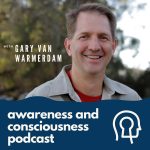Ego
Articles, audios and videos to understand and overcome it
About Ego
Some people would say that the ego doesn’t exist as they have never seen it. That’s like a person who claims they do not have a face because they have never seen a mirror. We don’t see our faces until we have a self-reflective surface. We need a self-reflective process to see or become aware of our ego. You must look inward in a way that you see parts of your behavior, emotions and thoughts as parts of your personality that doesn’t belong to what is intrinsically you. You see them as parts of your personality that are worth changing even if you don’t know how at first sight.
If you look inward and see only stuff you like, you will identify with all those parts, and say that is “me.” You will conclude that there are no parts that aren’t you. All is you, and there is nothing else there, no ego. This is being hypnotized to believe all the concepts of the ego are you.
You also have to drop the excuses of “That is just the way I am”, or “I’m this way because of my parents.” These excuses make those parts of your personality appear fixed, and unchangeable. You could say that those voices giving the excuses are part of the ego as well. They are narrating a story of self that is unchangeable, and helpless.
To do this self-reflective looking isn’t that complicated. It is only unfamiliar and so a few clarifications will help clear up obstacles. One is the abstract concept called “ego”. Most places don’t describe the ego in practical terms so people still aren’t sure what to look for. The other complication is that the ego has many manners of expression. A thousand different expressions of the mind can be attributed to the ego. Each expression is just one facet of the ego mind. Consider these questions.
What Is Ego? – A Resource
To further explore and define what Ego is (and isn’t) – see this resource.
A yes to these types of questions indicates the ego mind
- Does your mind make criticisms or judgments of other people at times?
- Are there thoughts about yourself being not good enough, or unworthy?
- Do you sometimes have the thought that you are unlovable?
- Do you sometimes think other people or the world would be better off if they did things your way?
- Do you sometimes feel other people are stupid, or idiots and frustrated with them.
- Does this ever come with a feeling of righteousness, or moral superiority?
- Do you sometimes feel insecure, or afraid people are judging you?
- Does the idea of public speaking make you nervous?
- Do you feel a need to defend yourself if someone questions what you are doing?
- Is it important how others perceive you?
- Do you feel you have not been sufficiently recognized?
- Do you fear you will fail, or not succeed?
- Do you fear death?
- Do you sometimes worry that you won’t be or aren’t a good parent?
- Do you sometimes find it difficult to sleep because your mind is busy with thoughts?
These questions don’t reveal all the facets and layers of the ego. They are merely a start.
Answering yes to any of these questions is an indication of ego. It indicates a self image where you find yourself better or less than others. This is a simple understanding of ego qualities, but it is a start. Another name for ego is self-importance.
Some people will look at these questions and say yes to all of them. They might assume that others would say yes to all of them as well. Yes, they are part of almost everyone’s personality, and they are still the ego. That is because having an ego is very normal. Everyone develops an ego growing up early in life. The difference later in life is how healthy the ego is or is the ego destructive and causing misery in your life.
Where does the Ego come from?
Everyone learns ways to be accepted by being something we are not. You also all learn ways to reject aspects of yourself. You tried hard to fit in and be accepted at school in some ways. You tried to excel and be special and that got you attention and approval. You also did these behaviors in order to avoid being rejected. Sometimes you got approval and acceptance for grades, for others it was looks, making people laugh, athletics, being kind, what clothes you wore, how hard you worked. You learned to value yourself based on that standard. You also likely made fun and rejected others if they were valued for something you didn’t have.
If you were “cool” because of how you looked, then being athletic wasn’t important. If you were athletic, then maybe you didn’t value grades as much and those people were “geeks.” If you were one of the geeks, you took pride in it and dismissed people who were valued for how cool they looked. You likely adopted a value and belief system that favored your self image so you would feel better. However, that didn’t prevent you from also adopting conflicting value systems that left you feeling unworthy and like a loser. At the same time you felt good about the value system that made you feel good, you were afraid of being judged by one that caused you to feel rejected.
Ego Sabotages Change
Self-acceptance and the self-rejection became automatic parts of your belief system and your ego identity
Over many years while we were young and impressionable, we had thousands of judgmental thoughts and comments. Every day at school we had multiple opportunities to compare ourselves to others. Thousands of repetitions of mental thoughts built up a strong belief system about our identity and worth, or lack of it. We made value assessments of how we were good in some areas and not good enough in other areas.
These false self-images in our mind contributed to our personality, fears, self-judgment, and strengths. The result of believing many thoughts over time created core beliefs of who we are and how we compare to other people. This belief system based identity and worth is what you could call the ego. This socialization is completely normal.
For more resources on self image and how it pertains to ego, click here.
Much of what may have driven us toward success can be attributed to the ego so it isn’t all bad.
From this situation growing up that everyone experiences it is possible to go forward though your adult years of your whole life and never reflect on these aspects. They may not have any impact on you that you notice so you would have no reason to investigate them. Or, at some point you discover that these little normal things that everyone has about their personality have grown to exaggerated levels and are making you miserable or unbearable to live with. Then it is time to do something about dismantling your ego.
An unhealthy ego might appear as:
- Incessant critical chatter from the voices in your head
- Anger
- Insecurity
- Anxiety
- Conditional love
- Need to prove you are right in every situation
- Jealousy
- Criticism of other people, often accompanied with a sense of superiority
- Depression
- Need to be perfect, or do things perfectly
- Feeling not lovable, good enough, or worthy
- Feelings of shame, guilt, or fear.
- Sense of superiority over others.
- Need to be superior to others
- Need for attention from others
- Self judgment and feeling worthless for having anything on this list or other reasons.
If these things, or others like them are going on you then in some way the belief systems of your ego are out of balance. The good news is that these conditions are not permanent. You can address the core beliefs that drive these thoughts, emotions, and behaviors and it can change.
Get the newsletter
Receive updates on new articles, videos and podcast epidsodes. 1-2 times/month.
What is the Ego?
The the Matrix in the movie The Matrix. It is all around you, and affects everything you do. However it will never identify itself as separate from you. You will have to make the separation and identify it with awareness, active commitment and practice.
The Ego Challenge
The ego as a false identity. It masks itself as multiple false identities in conversations in our mind. Those false narratives have a false “I” and “me” that incorrectly define us.
Articles and audios on the Ego
Conscious Awakening in Four Levels as Described with the Movie The Matrix
How Identify Your Ego
The Inner Critic - a Conversation
Emotional Self Abuse - How it Works
What Causes War
Self Awareness of Your Story
| Episode | Listen now | Date |
|---|---|---|
| #87 Changing Beliefs | 
Awareness and Consciousness Podcast
#87 Changing Beliefs
/
RSS Feed
Changing Beliefs using the Self Mastery Course from PathwayToHappiness.com is explained by Gary van Warmerdam. I outline the beliefs at the root of negative thoughts and emotional reactions affecting behavior. Then I outline how the Self Mastery practices guide you to develop the skills needed to do an inventory of your beliefs and dissolve them. | March 13, 2024 |
| #55: Origin of ego and false beliefs of identity | What are the false beliefs that form our Ego? Where do our false beliefs come from? When did we begin to get these false beliefs o our identity and lose touch with our authentic self? | November 12, 2016 |
| #46: Affirmations can backfire | Sometimes people get poor results with affirmations. When they say positive things about themselves the dialogue of thoughts in their head pushes back with harsh negative comments. | November 16, 2015 |
| #11: The ego mind and consciousness | Understanding the ego mind and consciousness means becoming aware of the way our mind dreams. The ego mind has more than just thoughts and beliefs; it has emotions, memories, visual images and a life of its own. When we believe what our imagination dreams we can get lost in a world of illusions. | January 28, 2007 |

